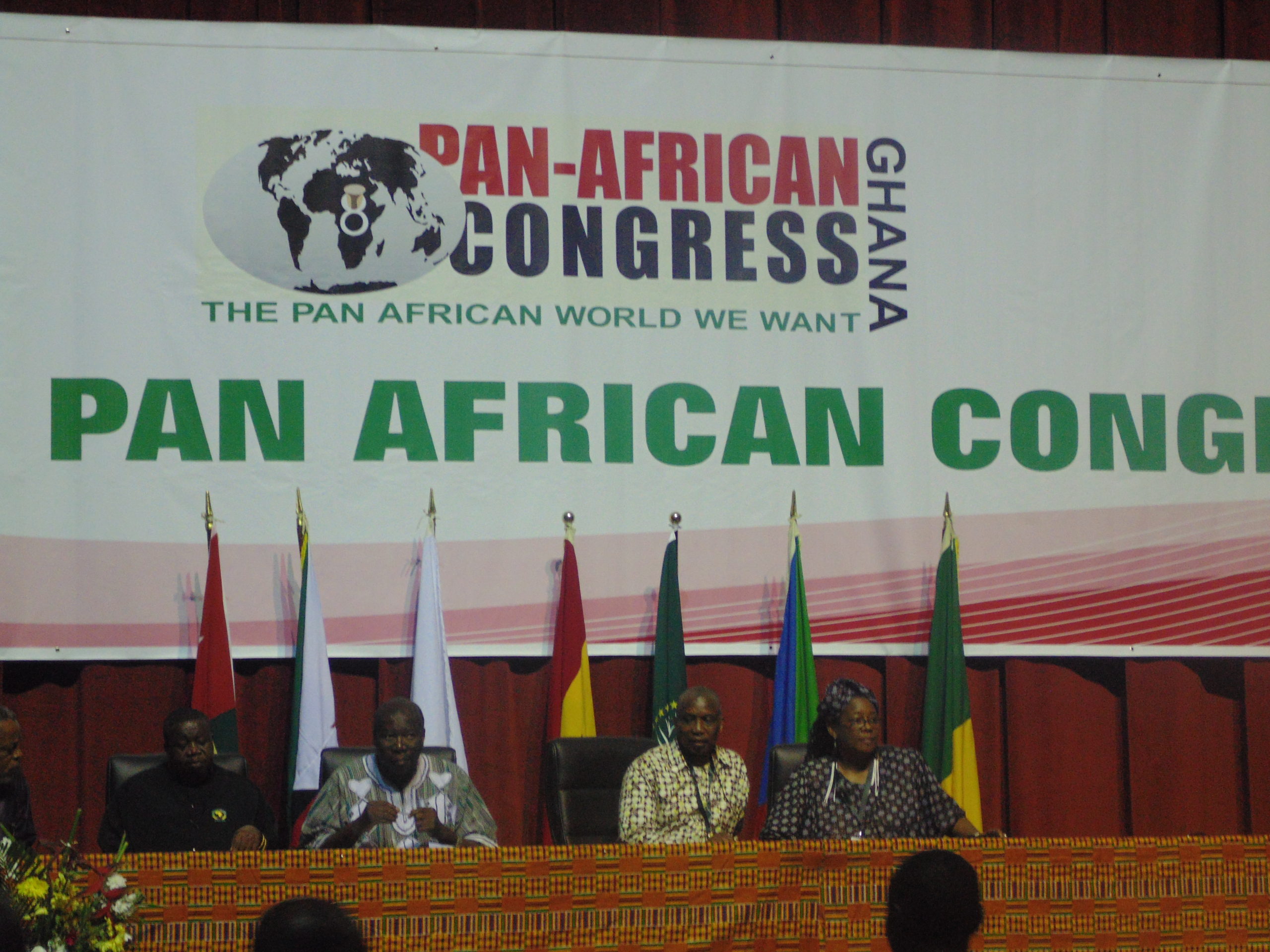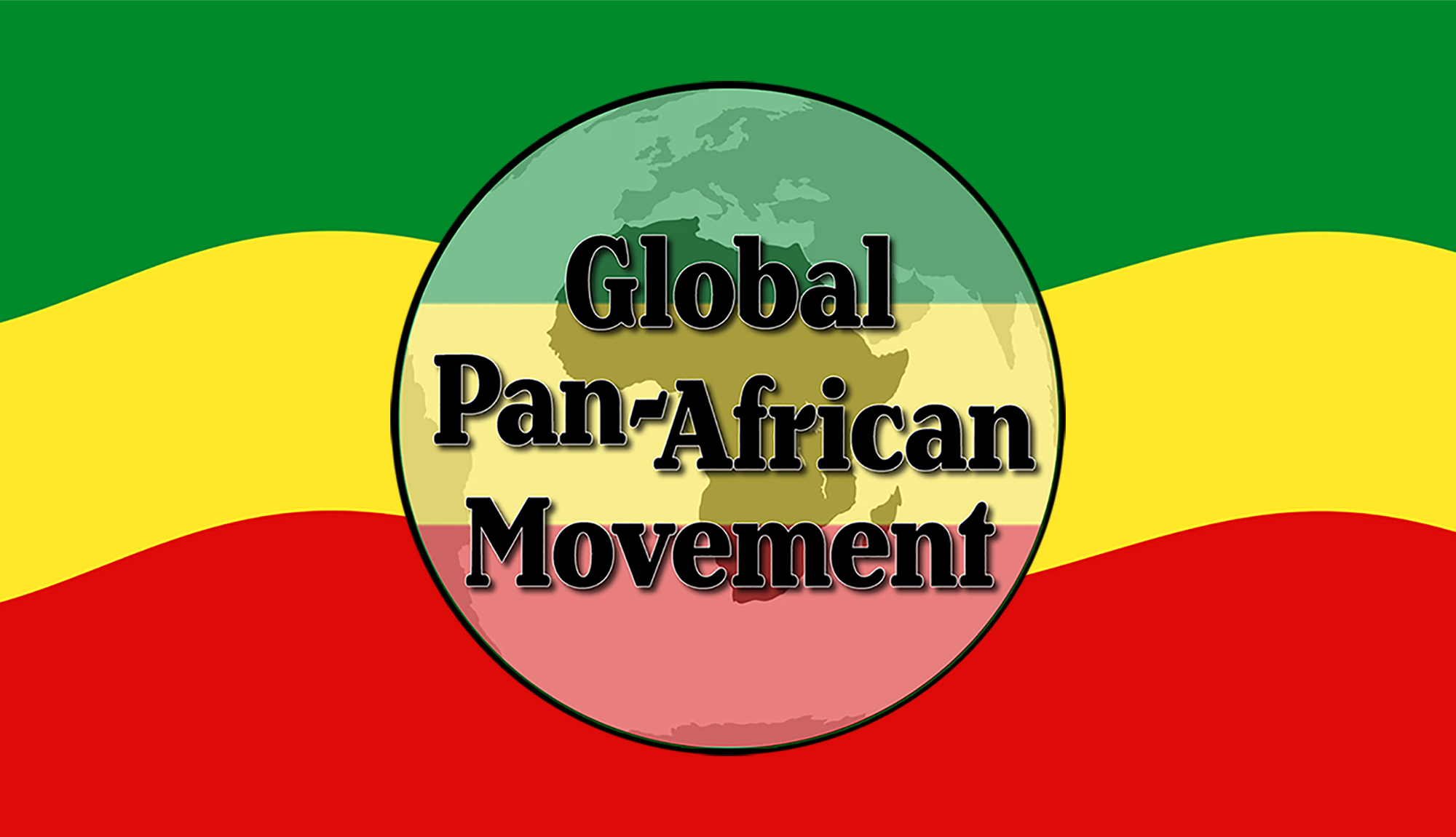Our Position on the 8th PAC: A Congress or a Regional Meeting?
A Congress or A Regional Meeting? The Position of the North American Delegation Regarding the March 2015 Pan African Meeting in Ghana
The North American Delegation strongly advocates for an 8th Pan African Congress that is consistent with the traditions of the Pan African liberation struggle and truly representative of the broader vision of Pan Africanism.
In April 1994, the 7th Pan African Congress concluded in Kampala, Uganda, with the adoption of 29 resolutions. This Congress and its resolutions were consistent with the process followed in Dar es Salaam, Tanzania, for the 6th Pan African Congress, as well as the others that preceded it. All 29 resolutions of the 7th Pan African Congress were mechanisms that both addressed issues specific to some constituencies as well as the barriers to a more inclusive Global African community overall.
One of the key resolutions of the 7th Congress was the establishment of a Pan African Secretariat that would call, manage, and fund subsequent Pan African Congresses.
This Secretariat could also serve as a home for a permanent Pan-African body for facilitation and dialogue or simply be the genesis for one. Due to the unforeseen death of Dr. Tajudeen Abdul Raheem, General Secretary of the Pan African Movement and principal organizer for decades, there was a period of reorganization with a continuing lack of funds during which the proper functioning of the Secretariat was affected over the next decade.
Another important resolution of the 7th Pan African Congress was to support regional mechanisms that would allow for local input at the broadest level geared towards the next Pan African Congress. Delegates also realized that this could only happen with sufficient funding, and therefore called for mechanisms by which both the regional and international convocations would be funded.
Other resolutions addressed the international dynamics such as the lack of African representation on the United Nations Security Council permanent seat; effective functioning of the African Union; the situation in Libya, Sudan, Haiti and Somalia, and Australia; the broader issues of racism, technological transformation, the role of youth, promotion of role models/mentors and gender oppression.
The issue of gender and oppression was fully addressed in a two day Pre-Congress meeting where women and men viewed gender oppression from a Pan-African point of view and developed specific mechanisms to be implemented both by the Secretariat and within the regions. Key among these was the establishment of a Women’s Section within the Secretariat.
On the ideological and procedural fronts, there was strong debate over the nature of subsequent bodies and specifically whether the Congresses should be guided by “principled political action or by protocol.” This was because many African governments at the time were succumbing to Western protocols/pressure and forgetting their genesis in the African liberation struggle. A clear resolution to the matter was that the Pan African Congress should promote the interests of the African people against a global current that continues to use them as fodder for an international financial system that strongly benefited others.
One mechanism by which this was to be achieved was through the incorporation of the entire Global African community, in tandem with all previous Congresses. This meant that African and Caribbean governments, as states representing African people, would have the same status in terms of participation as delegates from civil society from other states. In addition, representation from regional blocs and key institutions, such as labor movements, political organizations and social platforms would be important to ensure that the diversity of Pan African views would be well represented.
The planning process for the proposed 8th Pan African Congress meeting that was called in 2014 does not seem to have taken into consideration the key resolutions of the 7th Pan African Congress. Major issues about the Pan African outlook that were raised regarding the proposed meeting have not been addressed. Hence the question: is the March 2014 meeting in Ghana a Pan African Congress or a Regional Meeting?
In July 2014, Major-General Kahinda Otafire, Chairman of the Pan African Movement and head of the Secretariat released the International Preparatory Committee’s Call for the 8th Pan African Congress to be held in Ghana in November 2014. However, there were concerns that the Ebola scare, which had affected the West African nations of Sierra Leone, Guinea, and Liberia, would inhibit travel from those nations as well as regional travel in general. This was intertwined with the need to ensure that Congress is truly Pan African – through the broad participation of the entire Global Pan African family. Additionally, there were funding uncertainties and a call from some regions for further mobilization. Reconsideration was given to the meeting date and a postponement was called for, until a date could be determined in 2015.
A postponement was initiated, but more concerns were raised over the new date, March 2015. The new date was too close to the initial November 2014, and there were no guarantees that the issues that led to the postponement would have been resolved. The larger Pan African community continues to wonder why the Local Organizing Committee in Ghana insisted on the March date.
In November 2014 a pre-congress meeting was to be held in Kampala to address the progress on the resolution regarding gender concerns. Due to the same reasons for rescheduling the full body, the gender body was also postponed. Although funds were available at that time, it was never rescheduled.
Another major area of concern was the participation of the Global African community, especially the Caribbean region within the Pan-African Congress structure. Given the historic role of delegates from the Caribbean since the very first Pan-African Congress in 1900, it was only fitting delegates from this region be more formally acknowledged. Resolutions were adopted with respect to specific countries (Haiti and Brazil) as well as a broader one that called for more systemic inclusion of the Caribbean region at the ideological, political and economic levels.
The International Preparatory Committee’s Call identified as the broad theme for the 8th Pan African Congress “The Pan-African World We Want: Building a people’s movement for just accountable and inclusive structural transformation.” This Call provided a list of subthemes that were consistent in character with the resolutions adopted by delegates at the 7th Pan African Congress.
While many Pan Africanists had reservations about the March 2015 date for the 8th Pan-African Congress, there was no question about the content of the Call from the Secretariat. However, the content of the proposed Congress agenda does not appear to be consistent with the Call from the Secretariat and broader Pan African vision of the preceding Congresses. It appears to be deliberately structured to avoid any serious deliberations.
Certainly, no serious Pan-Africanist would deny Ghana’s leading role in advancing the vision of Pan Africanism. And many would welcome the opportunity to acknowledge this history during Ghana’s independence celebrations taking place concurrently with a Pan African meeting in Accra in the month of March. However, it will be a monumental disservice to the Pan African cause and to Ghana’s immense contribution towards the advancement of Pan Africanism if the country were to host a Congress that is exclusionary and falls short of deliberating on issues that will advance the interest of the oppressed African workers, women, and our brothers and sisters in the Global African family.
As a result of the foregoing, the North American Delegation states its position regarding the March 2015 meeting as follows:
The proposed March 2015 meeting in Ghana does not represent the total Pan African Movement, and hence is not representative of a Pan African Congress.
The North American Delegation only recognizes the meeting as a regional preparatory meeting for a broad-based and truly representative 8th Pan African Congress to be held at a later date.
Serious conceptual, consultative, and logistical groundwork needs to be done towards a broad-based Pan African Congress; but the organizing infrastructure (or lack thereof) in Ghana and Kampala doesn’t have the capacity for the required groundwork.
The agenda of the proposed meeting does not reflect critical issues of urgent importance that are affecting our brothers and sisters in the Global African Family – from the clamor that “Black Lives Matter” in the USA to the challenges facing about 100 million African descendants in Brazil and the effect of coup plotting on Africans in Venezuela as well as xenophobia in Europe and the question of reparations for Africans in Latin America, Caribbean, North America and elsewhere. Also missing from the agenda are the serious questions of regarding grassroots Pan African women, reconstruction and transformation in Africa – beyond election cycles and the looting of working people’s resources.
The North American Delegation therefore recommends that serious work and consultation be set in motion for the planning of an 8th Pan African Congress that is truly representative of the Pan African Movement and genuinely reflective of the critical issues affecting Africans on the continent and the Global African Family.


